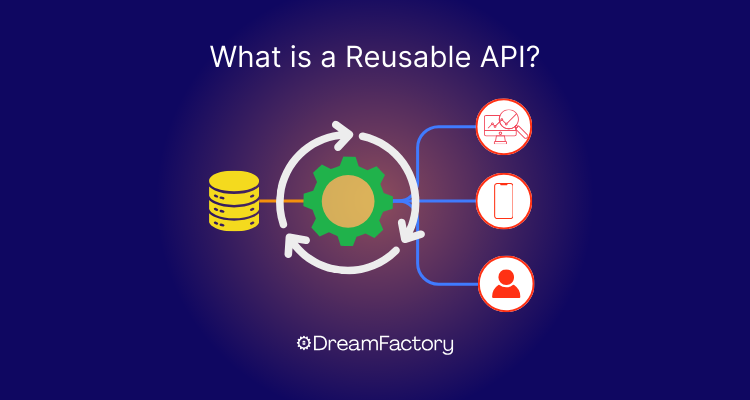You don't need to constantly create new APIs when you wish to link digital assets to your system. A Reusable API give you the power to integrate multiple applications and platforms with ease. This can help you to save time, optimize performance, and make tracking data a much simpler process. By utilizing existing APIs, you can save yourself considerable effort and increase efficiency, while also simplifying the management of essential information and increasing the functionality of your current data stack.
During your application development process, you might think that you need to add innumerable APIs so your assets can communicate with each other. Instead of creating unique endpoints for all of your API connections, you can connect apps, platforms, web applications, and microservices through a single location. Before you decide whether you want to use this API design, learn more about the pros, cons, and potential benefits of reusable restful APIs.
Recommended reading: API Management Best Practices
When Does It Make Sense to Reuse REST APIs?
Very small businesses might not need to reuse REST APIs. It largely depends on the number of applications, web services, and databases that you use.
On the other hand, you might consider adopting reusable APIs when:
- API creation starts taking up too much of your team’s time.
- You find it difficult to manage your APIs and API keys.
- You have diverse databases that don’t connect easily.
- Your organization relies on multiple databases and applications for business intelligence.
- You have a lot of customers or clients accessing your apps from outside your organization.
Recommended reading: 6 Reasons to Use API Management
Benefits of Reusable APIs
Lower DevOps Cost and Time
Your DevOps team shouldn’t need to create a different API each time you add data sources or mobile applications. Reusability lowers your DevOps cost and time. Instead of forcing your team to perform menial tasks, they can start new projects that will lead to business success.
Creating a different API for every data source or mobile application can be a daunting task for your DevOps team, not to mention an expensive and time-consuming one. Reusability of APIs is key to ensuring your DevOps costs stay low and your team can stay focused on the important work of developing new projects that will lead to real business success. By streamlining the process with reusable APIs, your team can focus on the critical tasks that will help your organization grow and succeed.
Furthermore, reusable APIs reduce the amount of time needed to develop applications and allow for flexibility in development, as well as a greater ability to troubleshoot should any issues arise.
Move Applications Between Servers Without Disruptions
Depending on how you manage your network, you may find that your team needs to move applications to other servers when more people start using them. Ideally, you will have scalable automation that solves this problem. If you maintain on-premises servers, though, you could encounter issues.
With reusable APIs, you can add a new service or move an app to a different server while experiencing a minor disruption. In some cases, users might not notice any disruption at all.
Spend Less Time Building Server-Side Software
Building server-side software often requires an in-depth knowledge of coding languages like JSON and Java. Even low-code platforms can’t always meet your goals until you get an experienced developer involved.
With reusable API, you spend less time building server-side software and adjusting schema so apps can communicate with each other.
Improve Productivity
The Wall Street Journal reports that nearly 10% of businesses use more than 200 apps. When you force employees to use independent APIs for each connection, you prevent them from working as efficiently as possible. Make it easier for them to access information and applications securely through reusable APIs.
Lower Security Risks
Today’s organizations need to take security risks seriously. Reusable assets can help you control who has access to your apps and data. Without reusable APIs, you may need hundreds of connections for your apps and web services. When you adopt reusable APIs, you make it easier to control and monitor who access your digital assets.
For example, you can create a single reusable API that uses Oauth validation to give qualified users access to multiple web services. By reducing the number of authentications you have to manage, you make it easier to spot abnormal behavior within your API platform.
Start a free trial with DreamFactory so you can experience the benefits of turning SOAP into REST APIs.
Potential Challenges of Reusable APIs
If you don’t have the right API platform, you can encounter potential challenges when you adopt reusable APIs. Before you choose a platform, make sure you get features that will avoid problems like faulty security and poor scalability. Some critical features include:
- Easy integration with popular databases.
- Flexible logging and reporting that focuses on your KPIs.
- Live API documentation for all data sources.
- Security options like SSO Authentication, JSON Web Tokens, Oauth, and User Management.
- Server-side scripting that supports NodeJS, Python, PHP, and V8JS.
- Data mesh that can combine unrelated databases.
- Instant API creation for when you want a unique API connection.
Reusable APIs can present developers with a number of potential challenges, many of which can be difficult to anticipate. One of the biggest challenges is the complexity of the APIs themselves. As developers build applications that rely on APIs, they have to create code that interacts with these APIs in an effective way. Designing effective code that works efficiently with APIs is often more complex than writing code that works with libraries or standard web services.
Another big challenge is the fact that APIs are often updated with new versions and revisions, which can create major complications for the many applications that may use them. With each and every new version, developers must ensure that their applications are compatible and that they implement the latest changes. This can result in a significant amount of additional work and make testing and debugging more difficult. Being able to anticipate this additional work load is a key point to adopting reusable APIs.
Also the speed of an API can have a massive impact on the performance of applications that use them. APIs can also sometimes be slow to respond or require a level of input in order for applications to operate correctly. Skilled developers will take this into consideration when designing applications and make sure that the performance of APIs does not hurt the user experience, which should be a major focus of any customer facing APIs.
Recommended reading: 7 Tips to Write Great API Documentation
Improve API Management With Help From DreamFactory
Creating reusable APIs becomes much easier with help from DreamFactory. DreamFactory can even automatically turn SOAP into REST APIs. You also get excellent security standards, API limits, and an admin console that keeps you in control of your assets.
Start a free trial with DreamFactory to discover how much more effective reusable APIs become when you have a platform designed to support your needs.
FAQ: Reusable APIs in Application Development
Q1. What are reusable APIs, and why are they important?
Reusable APIs are endpoints designed to connect multiple applications, platforms, and services without creating separate APIs for each use case. They simplify integration, optimize resource utilization, and streamline data management across diverse systems.
Q2. When should organizations consider using reusable APIs?
Reusable APIs are ideal for organizations that:
- Manage multiple applications and databases.
- Spend excessive time on API creation.
- Struggle with API key management.
- Require scalable solutions for external client or user access.
Q3. How do reusable APIs reduce development costs and time?
Reusable APIs eliminate the need to create and maintain unique endpoints for each connection, allowing DevOps teams to focus on high-priority development tasks. This approach accelerates application development and lowers long-term operational costs.
Q4. Can reusable APIs improve application portability?
Yes, reusable APIs facilitate seamless movement of applications between servers with minimal disruption. This is especially beneficial for scaling on-premises systems or transitioning to cloud environments.
Q5. How do reusable APIs enhance security?
By centralizing access control, reusable APIs reduce the number of access points, making it easier to monitor and manage security. For example, OAuth-based reusable APIs ensure consistent validation across multiple services, minimizing the risk of breaches.
Q6. What challenges are associated with reusable APIs?
Potential challenges include:
- Complexity in designing scalable and efficient API endpoints.
- Compatibility issues with evolving API versions.
- Performance bottlenecks that may impact application responsiveness.
Q7. How do reusable APIs support productivity in organizations with numerous applications?
Reusable APIs reduce the need for separate integrations, allowing users to securely access information and applications through unified endpoints. This reduces redundancy and improves overall workflow efficiency.
Terence Bennett, CEO of DreamFactory, has a wealth of experience in government IT systems and Google Cloud. His impressive background includes being a former U.S. Navy Intelligence Officer and a former member of Google's Red Team. Prior to becoming CEO, he served as COO at DreamFactory Software.
























 Blog
Blog


